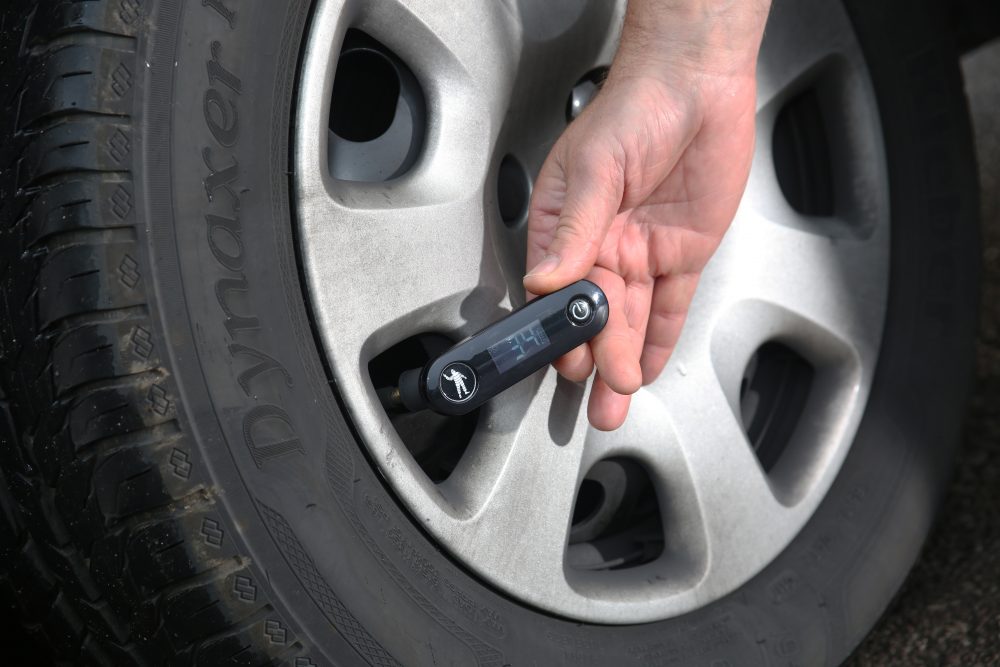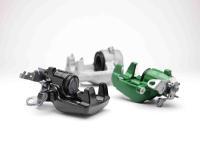Survey shows nearly 40 per cent of LCVs have dangerously inflated tyres

Fleet inspections carried out by Wheely-Safe have found that 39 per cent of the light commercial vehicles (LCVs) it checked were operating on at least one tyre inflated to dangerous levels, posing potential safety risks and driving up operating costs.
The tyre pressure experts checked the tyres on a sample of 100 LCVs across multiple fleets – including vans, minibuses and ambulances, plus some operating with light trailers – inspecting more than 400 individual tyres. It red-flagged 17 per cent of tyres for being under or over-inflated by at least 25 per cent – which can cause a tyre to have less grip, reduced stability under braking and cornering, plus an increased risk of tyre failure.
A further 21 per cent of tyres were flagged amber, meaning their pressures could negatively affect vehicle handling and fuel consumption, as well as speed up tread wear.

- A tyre which is 20 per cent under-inflated will typically return 20 per cent less mileage before needing to be replaced.
- Tyres under-inflated by 15 psi lead to around 6 per cent greater fuel consumption.
- Driving on under-inflated tyres reduces longevity, leading to deterioration that can result in a rapid deflation. 7 psi or more is classed as dangerous under-inflation.
- With under-inflated tyres, steering is less precise. If a bend can be taken at 62 mph at a tyre pressure of 29 psi, this drops to 54 mph at 15 psi.
- If tyre pressures are 30 per cent below the recommended pressures, there is a sharp increase in the risk of aquaplaning.
- Typical braking distances from 56 mph to 43 mph are 40m at 29 psi, and 5m longer at 15 psi.
The fleet inspections were carried out by Wheely-Safe as part of trials for its newly launched Michelin Tyre Pressure Management System Light Fleet, an intuitive, low-cost, and effective retrofit technology, which alerts the driver to tyre inflation issues and makes checking tyre pressures quick and easy.
Wheely-Safe calculated the average potential saving per vehicle it inspected to be approximately £150 per year – when considering the enhanced fuel consumption and longer tyre life from an LCV operating on correctly inflated tyres.
This means an average return on investment from the Michelin TPMS Light Fleet system within just a few months, based on a standard-spec vehicle with four tyres.
Other long-term savings will be made through a reduction in tyre-related breakdowns and downtime, tyre damage, accidents, related legal and insurance costs and reputational loss.
Andy Congrave, sales director at Wheely-Safe, says: “20 of the vans we checked were brand new, yet more than half of the tyres were under-inflated; a quarter of them seriously so. This is particularly concerning given they’d just arrived on a customer’s fleet, fresh from the supplying dealer’s pre-delivery inspection process.”
The inspections revealed one vehicle with a 69 per cent difference in tyre pressure between the offside front and offside rear tyres, another vehicle with two tyres over-inflated by 61 per cent and a vehicle with one rear tyre 54 per cent under-inflated – meaning it was running with less than half the advised pressure.
Commenting on the issue, he adds: “The lack of focus on tyre pressures continues to be a major problem for LCV fleets. It can cause a vehicle to burn more fuel, as well as increasing CO2 emissions, tyre wear and stopping distances. In contrast, taking steps to keep on top of pressures can be a win-win situation, bringing significant advantages from a duty of care point of view under the Provision and Use of Work Equipment Regulations (PUWER), as well as from an environmental and financial standpoint.”
The Michelin TPMS Light Fleet system provides visual warnings when a tyre reaches 15 per cent under-inflation and an audible alert at 25 per cent loss of pressure. Using a handy tyre pressure checker, the system also enables drivers, technicians and fleet managers to check all pressures across a vehicle in a matter of seconds, hygienically and without any loss of pressure – encouraging firms to keep a much closer eye on tyre inflation.
A standard boxed kit including a solar powered windscreen-mounted receiver, four TPMS sensors, a pressure checker plus a spanner and four locking wheel nuts costs £89.95, with additional TPMS sensors available for £10.95 each – i.e. for trailers or LCVs with twin rear wheels.




Comments